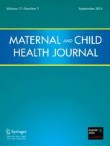
Abstract
Objectives
Breastfeeding is protective against childhood obesity, but the role of childhood lifestyle in this association is unclear. We investigated whether physical activity and dietary pattern at age 5 differed between breastfed and non-breastfed children, and how they relate to Body Mass Index (BMI) Z-scores.
Methods
1477 children of the Dutch GECKO Drenthe birth cohort were included. At one month, children were categorized as breastfed (receiving breast milk exclusively or in combination with formula milk) or non-breastfed (receiving formula milk exclusively). At age 5, height and weight were objectively measured, physical activity was measured by ActiGraph GT3x and dietary patterns were assessed with a parent-reported food pattern questionnaire, assessing the consumption frequency of selected food items at seven occasions over the day.
Results
Non-breastfed children had higher BMI Z-scores (0.36 ± 0.90 vs. 0.20 ± 0.80 SD, p = 0.002), more frequently consumed sugar-sweetened beverages (25.0 ± 10.5 vs. 22.5 ± 9.71 times per week, p < 0.001), and consumed relatively less whole-wheat or brown bread (p = 0.007). Differences in sugar-sweetened beverage consumption were most pronounced during main meals. Total fruit consumption, sedentary time and moderate-to-vigorous physical activity levels did not differ between the groups. Multivariable adjusted linear regression analyses showed that the differences in BMI-z score between non-breastfed and breastfed children were not explained by the differences in sugar-sweetened beverages or type of bread consumed.
Conclusions
Infant breastfeeding itself is indicative of healthy dietary behaviors in early life, and is also more likely to be followed by a favorable dietary pattern at toddler age. However, the differences in dietary habits between breastfed and non-breastfed children did not explain the difference in BMI Z-score at the age of 5.



Δεν υπάρχουν σχόλια:
Δημοσίευση σχολίου
Σημείωση: Μόνο ένα μέλος αυτού του ιστολογίου μπορεί να αναρτήσει σχόλιο.